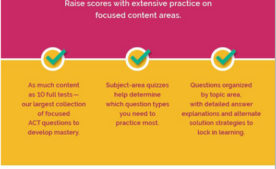
Decoding the AP Language and Composition Exam Rubric

February 7, 2024
The AP Language and Composition Exam is a popular AP exam for students in AP Language classes as well as students who aren’t currently enrolled in AP English. Many of the skills tested on the exam are skills students practice in high school English classes: synthesizing information from multiple sources, analyzing an author’s rhetoric, and writing argumentative essays.
The first part of the exam is a multiple choice section with questions asking students to analyze nonfiction texts (23-25 questions) and make editing choices on short essays (20-22 questions). The multiple choice section accounts for 45% of the AP Language exam score, and students are given one hour to complete it.
The second part of the exam requires students to write three essays. The three essays are Synthesis, Rhetorical Analysis, and Argument, and students are given a total of two hours and fifteen minutes to complete this portion of the exam. The fifteen minutes is considered the “reading period” and is the approximate amount of time you should use to read the given sources. Most of your reading time should be dedicated to the Synthesis essay since there are six or seven sources to read through for this essay. The essays account for 55% of the Language exam score.
For each essay, students can earn up to six points. It can be difficult to decipher what is required to earn these points and how students might gain or lose them. Since the AP Language Exam is a standardized test, there are specific things readers are looking for to award points in each category, which are outlined in the rubric for the essay questions.
Thesis (0-1 point)
According to the AP Language rubric, your thesis must respond to the prompt with a thesis that presents a defensible position.
The thesis point is usually the easiest point to gain, but having a strong thesis will also set you up for success for the rest of the essay. You want to make sure your thesis is on topic and defensible, meaning there is sufficient evidence to back up your ideas, either in the given text (for Synthesis and Rhetorical Analysis) or in your examples (for Argument).
For the Synthesis essay, your thesis must take a strong position, not just restate the prompt or show pros and cons for two sides of the given issue. For the Rhetorical Analysis essay, your thesis must analyze the writer’s choices, not state your own opinion on the topic. For the Argument essay, again, you must take a strong position on the given topic.
As you write your essay, make sure all paragraphs and ideas are in defense of your thesis .
Evidence and Commentary (0-4 points)
According to the AP Language rubric, your evidence and commentary must provide specific evidence to support all claims in a line of reasoning and consistently explain how the evidence supports a line of reasoning.
A line of reasoning is the formal structure of your argument, which should be well organized to help prove your thesis – ideas should be grouped properly and build on each other as you work through the essay.
Evidence and commentary is the place where most students have room for growth. Your evidence should be relevant , significant , and well analyzed . Many students have evidence but don’t include enough analysis of their evidence. You want to make sure you’re showing how your evidence supports your ideas , assuming no piece of evidence is self-supporting.
For the Synthesis essay, you will use evidence from the given sources to support your position. Evidence should be cited and scrutinized, not just placed into the essay to stand on its own. The exam requires you to cite from at least three sources, though more can be useful and help show a higher level of sophistication, as long as all the evidence is examined as thoroughly as possible.
For the Rhetorical Analysis essay, you are examining rhetorical devices used by the author of the essay. These devices may include frequent repetition, personal anecdotes, extended metaphors, particular diction, detailed imagery, or concrete data (to name a few). Make sure you’re familiar with a number of rhetorical devices to prepare for this essay. You want to make sure you’re stating why these devices support the author’s main idea.
For the Argument essay, you are bringing your own evidence to the table. Your examples can come from your reading (like novels or essays), your studies (like history or social studies), or your personal experiences. No particular type of evidence is superior to another as long as it is fully relevant and thoroughly explained. This essay gives you the broadest range of material to work with, so you may want to consider some topics you’re comfortable writing about before the exam and use them as long as they are on topic.
Sophistication (0-1 point)
According to the AP Language rubric, essays that gain this point must demonstrate sophistication of thought and/or a complex understanding of the rhetorical situation.
The sophistication point is typically the most difficult point to gain on an essay. It is sometimes referred to as a “unicorn point,” and only about 5-15% of students usually get this point on any given essay. While challenging to earn, there are some things you can do to work towards earning this point.
There are two ways to gain this point: you can demonstrate an advanced writing style or a nuanced argument .
To achieve an advanced writing style, you’ll want to use strong vocabulary, adhere to the rules of standard written English, and vary sentence structure. While these elements don’t have to be perfect, the stronger they are, the more likely you’ll be to earn this additional point. Make sure any complex sentences are clear; being wordy without purpose will work against earning this additional point.
To achieve a nuanced argument, you’ll want to avoid sweeping generalizations. The more specific the wording or example, the better. You’ll also want to directly address potential counterarguments and argue against them, putting the topic in a broader context and examining nuances in the given situation. The AP Language rubric is also looking for writing that is consistently vivid and persuasive. Include details and imagery; use strong and convincing language.
While this will remain the hardest point to achieve for any given essay, practice will help. One of the most effective ways to ensure your practice is properly focused and impactful on your performance is to work 1-1 with an expert tutor, who can give you personalized feedback on your FRQ responses. Get in touch with one of our Program Directors today or call 1-800-MY-TUTOR to get started.
*Any information in italics is directly from the AP Language rubric.
Cancel reply
Your email address will not be published. Required fields are marked *
Related Posts

Grade Inflation: What Families Need to Know

Summit’s 1-1 Peak Academic Math and Writing Courses
Finals Will Be Here Sooner than You Think

Mid-Semester Math Check-in: Assess Your Progress and Improve Your Study Habits

Some Advice for Students When They Don’t Click with Their Teacher
Executive Function Tips for Back-to-School

Hitting the Ground Running with AP Courses is Key

Summit’s 1-1 Peak Academic Math and Writing Courses

What is Active Reading? Strategies for Middle and High School Students

Grade Inflation. What it is and why Parents Should Care About it.

Who Should Test Early?

Introducing 1-1 College Tutoring

Approaches to Recovering from Learning Loss

Why your Student’s Grades and Courses Matter Earlier than you Might Think
One-on-One Customized Writing and Math Courses

Prospective Student-Athletes and the College Admission Tests

Summit Foundations of SAT and ACT Program

How Academic Tutors Help Students

Nurturing Greater Confidence in Math through 1:1 Discovery Learning

Improving Math Grades

Helping Students Master Critical Reading Skills

Successful Study Skills for Remote Learning During COVID
Making the Most of Live, Online Classes

AP® English Language
How to score your own ap® english language practice essay.
- The Albert Team
- Last Updated On: March 1, 2022

Practice makes perfect, which makes completing practice free response questions advantageous to the student. Figuring out how you did; however, is more difficult than it seems. As the writer, you have a certain bias that may make it more difficult to grade your own practice essay, but it can be done. If you remain impartial, follow the AP® English Language free response question rubric , and apply the ideas in this guide.
How to Draft a Response
Before we talk about how to score your essay, we must discuss how to draft a response to the AP® English Language free response questions. The first step is to understand your prompt and passage. Next, you must craft a thesis, or your argument. This is vital, because your entire essay should be based around the claim that you present in the thesis. The thesis should contain a roadmap to the rest of your essay, including your supporting details.
Once you have crafted your thesis, then write a short, quick introduction to that thesis, and insert your thesis after the introduction. This introduction must be concise and supplementary to your argument.
In the body paragraphs the thesis is supported. It is recommended that you do this in three body paragraphs at least. Great ways to do this is by citing proof from the passage or passages and inserting your own logical progression. By utilizing the text you allow yourself to gain credibility as a writer and impress your examiners.

The student will need to complete the three drafts in two hours and fifteen minutes; therefore, it is imperative that the student follows his or her argument and strongly supports it.
If you are practicing writing these free response questions on your own, then it is recommended that you write in a quiet environment that you cannot be disturbed in. This will allow you to focus on the paper as you would in the test location.
Remaining Impartial and Unbiased
When scoring your own AP® English Language free response question essay (FRQ) it is important to be an impartial and unbiased as possible. Be sure to spend at least half an hour away from the essay. This will allow you to clear your mind and be able to see the various mistakes and improvements that can be made to your essay easier.
The best way to do this is by writing the response in the beginning of the week, and then setting it aside until the end of the week. Once you pick the essay back up at the end of the week, then you can read the free response as if you are an outsider scoring your paper. This simulates an examiner reading your paper as it will be done for the AP® English Language scoring.
Be sure to remember that you should not be too easy on yourself. Growth is important with these practice free response questions, and that cannot be done if you deem your paper “perfect”.
Focusing on the AP® English Language Free Response Question Rubric
The next step in scoring your own free response question is to have the AP® English Language Argument Rubric in front of you as you read your essay. By doing this, you will not diverge from the given requirements of the College Board.
Ask yourself questions or make a checklist that contains all of the elements that you will need.
1. Is your grammar and mechanics confusing?
Always be sure to note this, because if your grammar and mechanics are too sloppy or confusing, then your score will fall to a 2. If your use of language is understood but contains major errors, then you will receive a 4 or 5. If your language is tolerable with minimal errors, then you could receive a 6, 7, 8, or 9 depending on the other elements of your essay.
2. How many supporting details do you have? Is your argument supported?
Your argument must be adequately supported. Do you do this in your essay? If there is no evidence of support, then give yourself a 1. Work on bringing in reasoning skills and pulling evidence from your passage.
If your essay reflects few supporting details, then give yourself a 5. This means that you have an argument and supported it, but there is more to be desired. The audience has not bought into your argument yet.
To be able to score yourself with a higher score, your support must be thorough. Citing from the text is extremely important as well as explaining why that quote supports your argument.
3. Is your evidence convincing?
Convincing evidence goes hand in hand with supporting details. Having convincing evidence means that you have utilized your supporting details and explained why they are important. Your purpose is to persuade, and having convincing evidence is vital. The examiner should not doubt the validity of your interpretation, because your evidence must convince the reader.
In order to get an 8 or 9 on the AP® English Language free response questions , you must find textual evidence, use it, and elaborate on its significance to your argument. The last element is especially important as it is the core of your essay.
If you did not relay the significance of your evidence to the argument at all, then give yourself a 4. This means that you have an argument and you have support, but you have not connected the two yet.
If you did relay the significance to the argument somewhere in the essay, then give yourself 5 to a 7 depending on how often you did this.
4. Is your argument clear?
Clarity goes a long way on the AP® English Language free response questions . Your argument must be elevated to the highest priority and explained. This allows the examiner to have no question of what you are claiming.
If you go back and read your essay to find that you are not sure what the argument is, then give yourself a 2. This means that your essay is unsure in your thesis.
To earn a higher score is to be clearer in your argument. Your thesis statement needs to provide a clear claim that you will see and understand every time you read the essay. An essay with a score of eight or nine is direct in its argument and is not subtle in sharing it with the reader. This is the most effective way of delivering the thesis.
5. Do you utilize your sources?

There is an essay called the synthesis essay which is within the free response question section of the AP® English Language exam. The synthesis essay rubric dictates that you use at least three of the sources in your essay to get a high score.
If you are writing a synthesis essay and you did not include sources, then give yourself a 2. As you utilize sources proficiently your score will rise. It is recommended to use three or more sources; however, be cautious in using more than five. This will seem excessive and your credibility as a proficient analyst will suffer, because the essay will be predominantly the source material and not your own ideas.
6. Are you off topic?
Staying on topic is essential to the free response questions . Never stray from your argument for any reason, because if you are off topic, then your score will drop to a 3 or even may not be scored at all. If you remain on topic, then you have a chance at a much higher score, which will depend on your use of persuasion.
7. Is your writing effectively persuasive overall?
The purpose for writing the essays for the AP® English Language free response questions is to persuade through argumentation and synthesis. Your use of the English language, however, also plays a role in the effectiveness of your response.
Using rhetorical devices and figurative language takes your essay to the next level, and an examiner may bump your score up a number if you are eloquent enough. Therefore, if your essay is especially convincing in its language usage, then take the overall score and raise it one point.
Tips to Remember
There are some elements to keep in mind when you are scoring your own paper. Remember that examiners love to reward students for what they do well. If you see a point that resonated, then keep that in mind as you score yourself.
It is also important to note that the AP® English Language exam’s free response questions are a long and arduous task if you do not practice beforehand. Practice frequently throughout the year to gain the benefits you need and keep on scoring!
Photo by Popular Science Monthly [Public domain], via Wikimedia Commons
By the way, you should check out Albert.io for your AP® English Language review. We have hundreds of AP® English Language practice questions written just for you!
Interested in a school license?
Popular posts.


AP® Score Calculators
Simulate how different MCQ and FRQ scores translate into AP® scores

AP® Review Guides
The ultimate review guides for AP® subjects to help you plan and structure your prep.

Core Subject Review Guides
Review the most important topics in Physics and Algebra 1 .

SAT® Score Calculator
See how scores on each section impacts your overall SAT® score

ACT® Score Calculator
See how scores on each section impacts your overall ACT® score

Grammar Review Hub
Comprehensive review of grammar skills

AP® Posters
Download updated posters summarizing the main topics and structure for each AP® exam.
Interested in a school license?

Bring Albert to your school and empower all teachers with the world's best question bank for: ➜ SAT® & ACT® ➜ AP® ➜ ELA, Math, Science, & Social Studies aligned to state standards ➜ State assessments Options for teachers, schools, and districts.
✍🏽 AP English Language - Score Calculator
Fill out the info below, and pep will predict your ap score 🪄.
Based on 2023 Exam Scoring Guidelines - these scores may not be 100% accurate
Section I : Multiple Choice
Section ii : free response, multiple choice, free response, weighted score, predicted ap score.
26.10% of students achieved this score last year.
You're doing great! Let's boost your confidence even more
AP Score Calculator FAQ
How does this ✍🏽 ap english language score calculator work.
Adjust the sliders to guesstimate which rubric points you think you’ll get. The calculator will apply the accurate score weights + give you an estimated final score! (Pep’s final form will change depending on your score 🌶️)
Exam sections and scoring
- Every AP subject has standardized sections on the exam. They usually include multiple choice and free response questions.
- Each section is worth some number of points based on 1) the number of questions and 2) sometimes a scoring rubric. Each section also has a different weight on your final score.
Is it accurate?
Yes! The weights of the score + the points possible are very accurate, based on info from the Course & Exam Descriptions and Scoring Guidelines from the 2023 AP exams.
(If you notice any errors, please email us at [email protected] so we can fix it!)
The one area that can’t be perfectly accurate is how we determined the final predicted scores (College Board doesn’t publish the “cut points” for each scores.)
We used old released exams and other calculators to estimate “if you earned this % of points, you would earn this score”:
- 75% or more = 5
These are meant to be benchmarks to give a rough idea of where you might fall, but the actual numbers are adjusted each year to be based on the curve. We’re probably pretty close though.
How are the ✍🏽 AP English Language exams scored?
- Multiple Choice questions are graded with a computer, those are super easy to grade quickly.
- Some teachers do this remotely and grade online, others are physically in person reading essays. They sit together at tables in huge conference centers for ~1 week to go through every single essay.
- These educators are truly rooting for you to get as many points as you can. When there is a high scoring essay, the table quietly celebrates 🥳
- Total scores for multiple choice and free response are combined, then translated into a 5-point scale.
What is a good score on the ✍🏽 AP English Language exam?
It’s all relative (really). We tend to think your score matters far less in the long run, so there really isn’t such thing as a “bad score”. Taking the test and going through the process is correlated with going to and doing better in college.
Technically, a “3” is considered passing because it’s the lowest score that can earn college credit. Some colleges require 4s or 5s. And some (elite) colleges don’t give credit at all.
You can search all colleges for their AP Credit policy here: https://apstudents.collegeboard.org/getting-credit-placement/search-policies
What were last year’s ✍🏽 AP English Language scores?
College Board publishes the distribution of scores for every subject so you can see what % earned each score on the 5-point scale: https://apstudents.collegeboard.org/about-ap-scores/score-distributions
We listed these on the calculator as well :)
How can I improve my ✍🏽 AP English Language scores?
This calculator is useful because it’s a baseline. Once you know your strengths and weaknesses, you can make a plan to improve!
In the weeks leading up to the exam, you should do a few things:
Take the time to review all the content. Don’t reread the textbook or anything, but remind yourself of all the key topics.
Go through the study guides and find areas where you remember less content: https://library.fiveable.me/
Start practicing questions on topics that you know the least. You can do easy, medium, hard, or extremely hard questions to test yourself: https://library.fiveable.me/practice
And finally, attend a cram session in the days before the exam to get a last minute confidence boost: https://library.fiveable.me/cram-events
When do ✍🏽 AP English Language scores come out?
The scores are usually released the week after the 4th of July. You can get them by signing into your College Board account. Instructions are here: https://apstudents.collegeboard.org/view-scores

Stay Connected
© 2024 Fiveable Inc. All rights reserved.
AP® and SAT® are trademarks registered by the College Board, which is not affiliated with, and does not endorse this website.

IMAGES
VIDEO
COMMENTS
AP English Language Scoring Rubric, Free-Response Question 1-3 | SG 1 Scoring Rubric for Question 1: Synthesis Essay 6 points Reporting Category Scoring Criteria Row A Thesis (0-1 points) 4.B 0 points For any of the following: • There is no defensible thesis. • The intended thesis only restates the prompt.
8 − Effective. Essays earning a score of 8 effectively develop a position on the role, if any, that public libraries should serve in the future. They develop their position by effectively synthesizing* at least three of the sources. The evidence and explanations appropriately and convincingly support the student's position.
The AP Language rubric is also looking for writing that is consistently vivid and persuasive. Include details and imagery; use strong and convincing language. While this will remain the hardest point to achieve for any given essay, practice will help. One of the most effective ways to ensure your practice is properly focused and impactful on ...
The AP English Language exam is scored on a scale of 1 to 5, with 5 being the highest possible score. The AP English Language and Composition Exam has two different types of questions: multiple-choice and free-response. The exam duration is 3 hours and 15 minutes. The multiple-choice portion of the exam accounts for 45 percent of the total ...
English Language and Composition. Scoring Rubric for Question 1: Synthesis Essay. 0 POINTS. 1 POINT: For any of the following: No defensible thesis Simple restatement of prompt only Summary of topic with no clear claim ... ® and AP are trademarks registered b the ollege oard, which is not affiliated with, and does not endorse, this product ...
AP® English Language and Composition Scoring Rubric for Question 1: Synthesis Essay 0 POINTS 1 POINT For any of the following: No defensible thesis Simple restatement of prompt only Summary of topic with no clear claim States an apparent fact rather than a defensible claim. Off-topic Defensible thesis Clear position
In addition to the basic rubric scoring criteria, the College Board provides helpful "decision rules" for how to apply the criteria more specifically. Notably, these rules vary by essay type. Access the complete College Board (and revised) rubrics with the decision rules here: AP ® English Language. Q1: Synthesis Essay; Q2: Rhetorical Analysis
AP English Language and Composition Scoring Rubrics (Effective Fall 2019) September 2019 . Scoring Rubric for Question 1: Synthesis Essay (6 points) Reporting Category ... One-Page AP English Language and Composition Scoring Rubrics, Effective Fall 2019 - Updated September 2019 Author: College Board
Microsoft Word - ap_writing_rubric[1].doc. AP English Language and Composition 9-point Rubric. 9. Essays earning a score of 9 meet the criteria for 8 papers and, in addition, are especially full or apt. in their analysis or demonstrate particularly impressive control of language. 8. Essays earning a score of 8 effectively respond to the prompt.
There is an essay called the synthesis essay which is within the free response question section of the AP® English Language exam. The synthesis essay rubric dictates that you use at least three of the sources in your essay to get a high score. If you are writing a synthesis essay and you did not include sources, then give yourself a 2. As you ...
Complicated/complex sentences, or language is ineffective Nuanced thesis that is supported throughout the argument Acknowledgement of limitations and implications of an argument (by the student or included in the sources) that examines the broader context Successful rhetorical choices by the student SOPHISTICATION Mature and consistent writing ...
Complicated/complex sentences, or language is ineffective. Inconsistent use of complicated or complex sentences or language. Complex thought and/or sophisticated comprehension of the rhetorical situation. Nuanced thesis that is supported throughout the argument. Broader context of the text's purpose. Acknowledgement of differing perspectives.
AP English Language and Composition Question 2: Rhetorical Analysis 2020 Scoring Commentaries (Applied to 2018 Student Responses) 4 September 2019 Sample F 6/6 Points (A1 - B4 - C1) Row A: 1/1 The response earned a point for Row A because it provides a defensible thesis relative to the rhetorical choices Albright made to convey her message.
Write an essay that argues your position on the value of striving for perfection. In your response you should do the following: • Respond to the prompt with a thesis that presents a defensible position. • Provide evidence to support your line of reasoning. • Explain how the evidence supports your line of reasoning.
3. 26.10% of students achieved this score last year. You're doing great! Let's boost your confidence even more. Practice to boost your score! reset. Score big on 🏽 AP English Language! Our calculator breaks down 5-point secrets. Crush MCQs & the free response sections on your next AP exam!